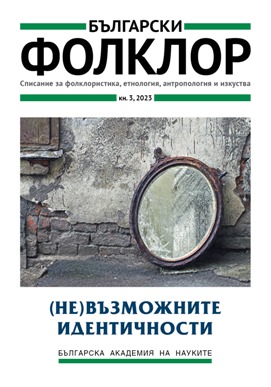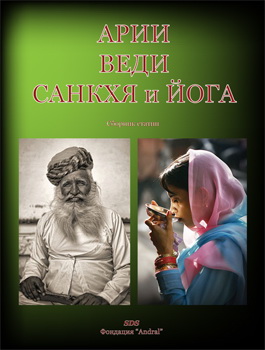
Арии. Веди. Санкхя и Йога
Collection of papers and articles on ancient Indian literature and culture
More...We kindly inform you that, as long as the subject affiliation of our 300.000+ articles is in progress, you might get unsufficient or no results on your third level or second level search. In this case, please broaden your search criteria.

Collection of papers and articles on ancient Indian literature and culture
More...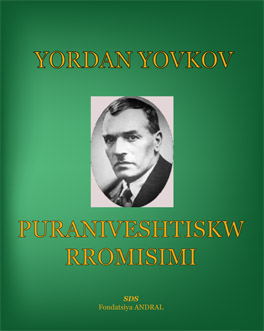
This is the first translation into Romany of Jordan Yovkov's "Stara Planina Legends".
More...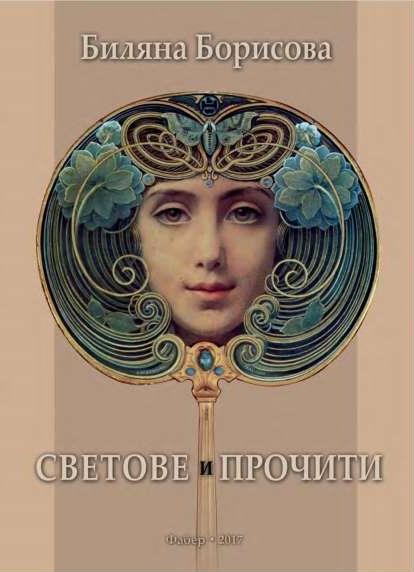
"Worlds and Readings" is a collection of selected articles, studies, and critical texts written at different times and on various occasions but related to the invisible threads of a constant interest in art as a universe of images and meanings, forms and significations, an interest in the book as an autonomous world, in the author as a magnetic figure-embodiment of the mysterious act of creating worlds. Bilyana Borisova is a Doctor of Literature and a lecturer of history of Bulgarian literature after the Liberation at Sofia University "St. Kliment Ohridski ". Her research is on the Bulgarian artistic avant-garde. She authored many articles and studies in the field of Bulgarian literary history and history of culture, many critical texts on works by contemporary Bulgarian authors. She is co-author of "Atlas of Bulgarian Literature 1878-1914" (2003) and "Atlas of Bulgarian Literature 1915-1944" (2005).
More...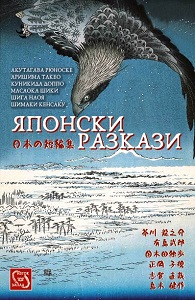
The book is a bilingual collection of selected short stories by famous Japanese writers from the late 19th and the early 20th centuries. The admirers of Japanese literature will have the opportunity to meet again the famous Ryūnosuke Akutagawa, as well as to become acquainted with lesser-known japanese wordsmiths. The publication enables language learners to work with the original text and the translation into Bulgarian. The stories (except of the "Mandarins") in this book were translated for the first time in Bulgarian. The compilers and translators are Lyudmila Holodović (Japanese language professor and Japanese literature professor at the Sofia University “St. Kliment Ohridski”) and Alexander Kirov (Japanese Ph.D, graduated in Japanese at the Sofia University, St. Kliment Ohridski", who has specialized in various Japanese universities and the Japanese Language Center).
More...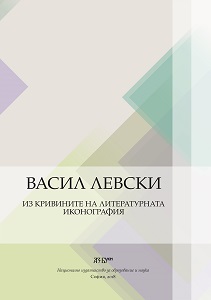
Dedicated to the 180th anniversary of the birth of Vassil Levski, this collection gathers in one place the research efforts of literary writers and historians. The aim is tracing the way of the narrative about the historical personality to the sacred status of the national icon of the Apostle. The achieving of this scientific task intertwines the poetry of the "canonization strategist" (Hristo Botev), the words of today's lyricists, the memory of the associates, the "written by the hand of the Apostle", the results of an Olympiad in Taraklia (Moldova), the English press, the today’s children book and even the name of a mystical regiment The research efforts face the mystery of Apostle’s path into and out of monasticism, the words of veterans and philosophers, the ode and the rhapsody, the camera and the paint brush, the sound and the letter... To draw a never-ending journey, that will forever - and everywhere, accompany the Bulgarian spirit.
More...
The text attempts to reconstruct the beginning of the Bulgarian heroic epic. The author believes that the structure of the author‘s epic was invented by Hristo Botev and was later extended by Ivan Vazov. Vasil Levski‘s figure is met in both poets, but while Vazov writes the live of the Deacon like a saint, Botev carries out his literary canonization according to all ritual procedures and turns it into the Bulgarian Jesus.
More...
The year 1898 marked the first jubilee of Vasil Levski – 25 years since his hanging. The dynamics of political processes in liberated Bulgaria at the time present a rather interesting and particularly complex picture against the background of which this event unfolded. The stereotype of jubilee celebrations was yet to consolidate and this particular occasion – the anniversary since the death of the Apostle of freedom – makes visible the deep political contradictions inherited from previous historical realities. The manifestations of these contradictions can be seen in the press in 1898.
More...
The paper examines for the first time the initial reception of Vasil Levski’s image and significance in the British daily and weekly press in the period 1867 – 1908. Commencing with a curious case of the first appearance of his name in the British press, the paper focusses further on press contributions reporting on a series of Bulgarian state ceremonies and commemorative events that, on the one hand, function as rituals of state iconisation of the Bulgarian national hero Vasil Levski and, on the other hand, exploit his high status for political purposes. In its final part the paper presents the first critical voices in the British press against the political instrumentalisation of Vasil Levski’s image in Bulgaria.
More...
The essay attempts to juxtapose and analyze the divergent and often contradictory stories accompanying Vasil Kunchev’s path into and out of monasticism, his subsequent religiosity, and his Christian consciousness. It outlines the image of a man experiencing doubts and inner conflicts but preserving his faith. His letters and proclamations clearly reveal how the knowledge of Christianity he had received and his life of faith shaped his revolutionary philosophy.
More...
The present paper entitled “Exaltaions about Name: or, Two Contemporary Anthologies Dedicated to the Apostle and Beyond Them” comments the existence/non-existence of interest about the historical figure and life's work of Vasil Levski as a thematic field in Bulgarian poetry in the last few years. The observations, made on the basis of separate works of art, books and virtual sites, are a scientific attempt to outline the profile of current trends. These trends are combining aesthetic and socio-political attitudes towards the figure of the Bulgarian national hero.
More...
The current publication presents the activity of the Vasil Levski National Museum aimed at achieving two important tasks.The first task is the formation of a truthful idea of the personality of Vasil Levski in the youngest visitors of the museum, aimed at creating a sound basis for the development of further knowledge of his personality and his role in Bulgarian history. This task is being realized by two books targeted at children and pupils, producedby the museum, as well as the work of the museum’s children center. The second task is popularizing the personality of Vasil Levski as one of the greatest European revolutionaries of the 19th century among the international audience.The emphasis here are two museum editions – a book for Levski translated in eight languages and a book (in Bulgarian only) about the greatest European revolutionaries and thinkers among his contemporaries, at the time when he lived and fought for Bulgarian freedom and for his democratic ideas.
More...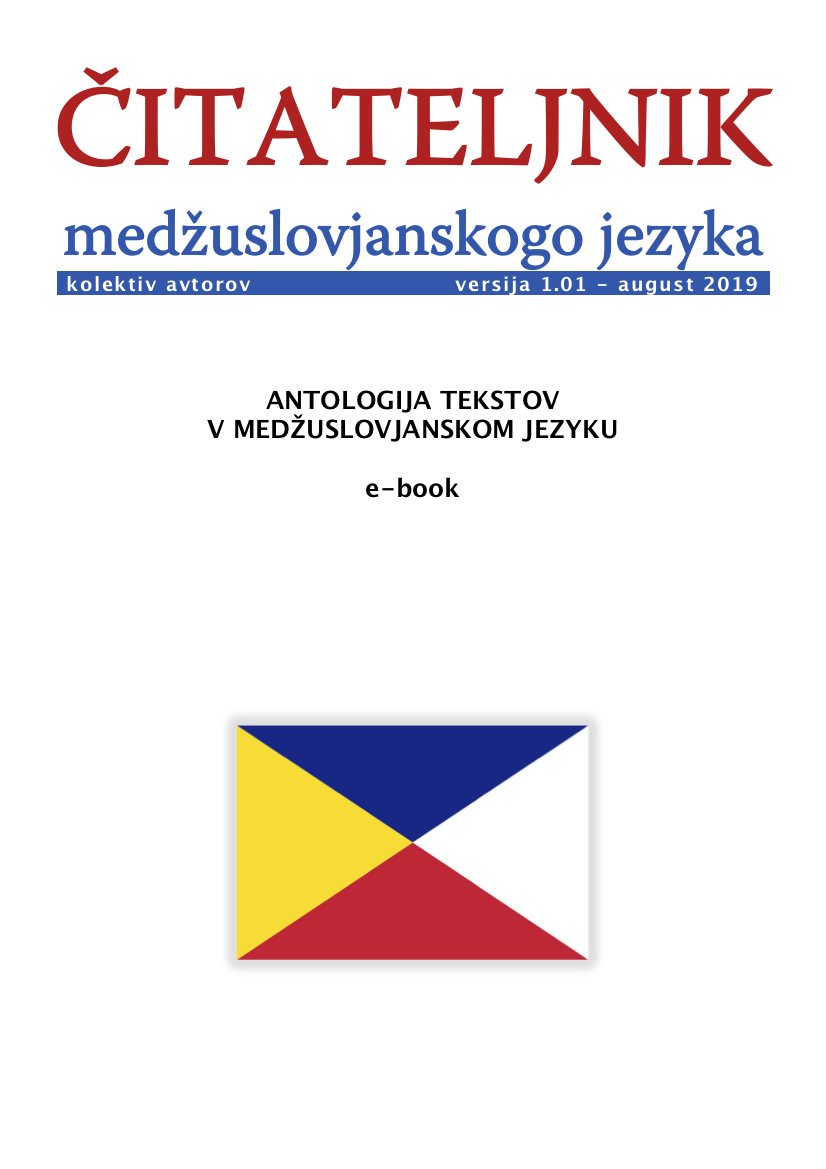
Interslavic reader is a collection of working texts for teaching the Interslavic language which is an auxiliary language being very similar to the ethnic Slavic languages spoken in Central and Eastern Europe and continuing the tradition of the Old Church Slavonic language. Interslavic shares its grammar and common vocabulary with the modern spoken Slavic languages to serve as a universal language tool that Slavic people can understand without any or with very minimal prior learning. It is an easily-learned language for those who want to use this language actively. Interslavic also enables passive (e.g. receptive) understanding of the natural Slavic languages. Non-Slavic people can use Interslavic as a door to the big Slavic world. / Čitateljnik jest spisok tekstov služečih do učenja medžuslovjanskogo jezyka.
More...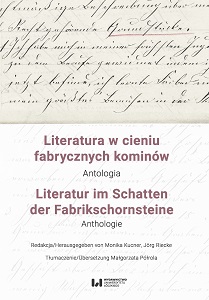
The book is a bilingual anthology of over fifty texts written in German by 19th- and 20th-century authors, absent from the critical and popular consciousness so far, but deeply rooted in Łódź history. The editors attempted to reconstruct literature written in the distinct regional variety of the German language called Lodzer Deutsch (or Lodzerdeutsch), and to present it as translated into Polish. The texts have for the most part been sourced from newspapers, few of which having been digitized; the publication therefore also contributes to saving the cultural heritage of Łódź. The reader can also find authors’ profiles, a minidictionary of selected Lodzerdeutsch vocabulary, introductory essays on the historical and cultural context of “Łódź literature” and on the characteristics of the Łódź variety of German. The publication is accompanied by five audio tracks in Lodzerdeutsch read by Aurelia Scheffel, who left Łódź – her home town – and moved with her parents to Oldenburg in 1946. The language presented in the recordings is one which Scheffel used on a daily basis in her home. Each track can be played by clicking on a corresponding link below.
More...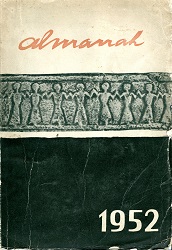
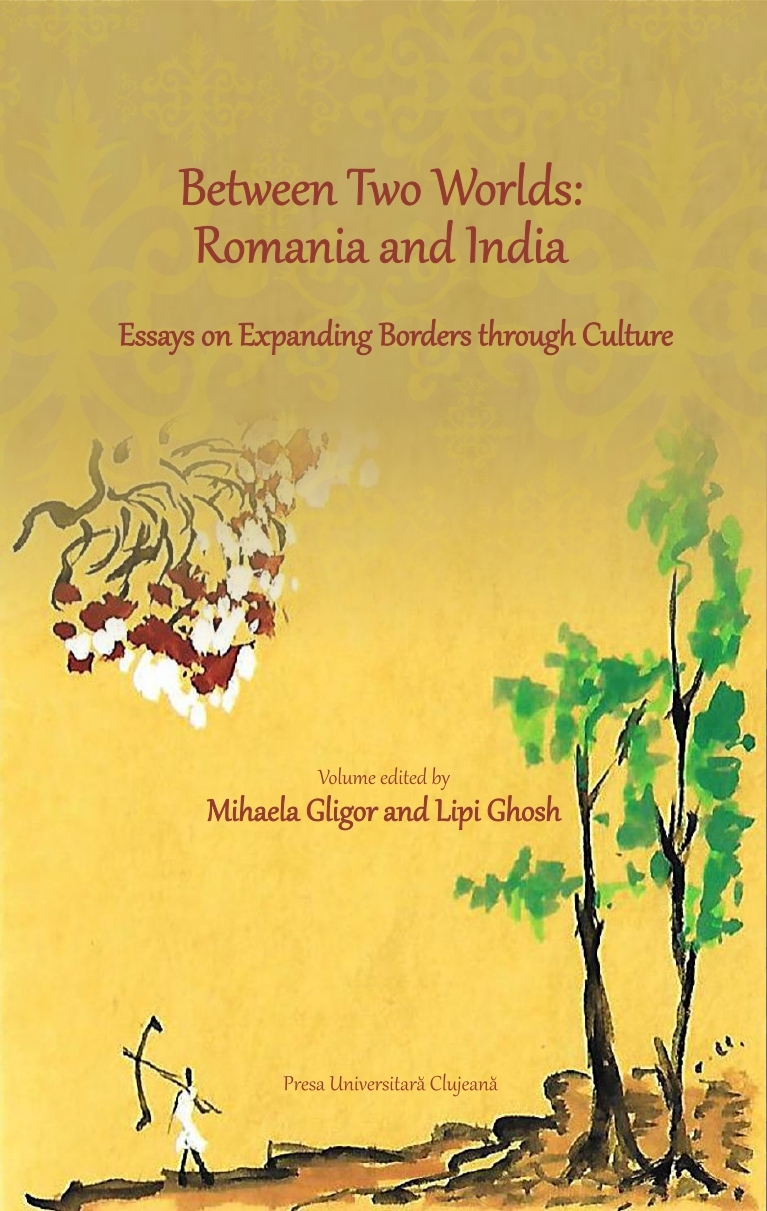
Born into a socially conservative but intellectually liberal family, Maitreyi was the daughter of scholar-philosopher Surendranath Dasgupta and Himani Madhuri Rai ( sister of Himanshu Rai, owner/ founder of Bombay Talkies). Her early childhood corresponded with the trying years of the First World War while in her youth she was exposed to the political lessons of the Second World War — to fascist Italy, to the Hitlerite regime in Germany, to Stalinist and post-Stalinist Russia, to Republican and communist China — when Maitreyi, was perceived as a left-wing sympathiser. This was the era of the emergence of nation-states, of obsessive nationalism and revolts against hegemonic and capitalist forces. As an intimate protégée of Rabindranath Tagore, wherever she travelled, to China, Russia, Eastern and Western Europe, she practised the transnationalism that marked out the travelogues of Tagore. This meant that both colonial perceptions and the nation-state centric approach were disrupted by discourses of inter-connectedness that in turn challenged conceptual boundaries of difference and ethnicity
More...